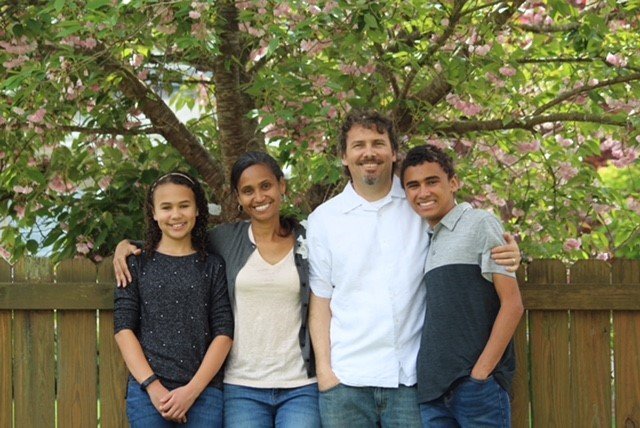Meet EPA Biologist John Cowden, Ph.D.

John Cowden works in the Office of Research and Development’s Center for Computational Toxicology and Exposure. As a Branch Chief, he works with different EPA scientists, managers, and research program directors to coordinate research projects.
How does your science matter?
Science is the foundation of EPA’s mission. We provide scientific data and analyses supporting public policies protecting human health and the environment. At the Center for Computational Toxicology and Exposure, we are developing predictive models using toxicological and biological data to anticipate potential effects of chemicals. These computational models are often the only option for estimating the effects of chemicals with little or no available data.
What do you like most about your research?
In my role as branch chief in the computational toxicology and bioinformatics branch, I have the privilege of working with highly skilled researchers pushing the frontiers of science. I enjoy seeing innovations from our Branch being applied to Agency research and regulatory needs. In addition, I am the Assistant Administrator for Hawaiian Shirt Fridays. I encourage sharing the Aloha spirit by wearing Hawaiian attire on Fridays during tourist season (Memorial Day to Labor Day).
When did you first know you wanted to be a scientist?
I have been interested in science since elementary school, but I was really hooked at a summer research program during high school. I still remember the DNA extraction lab and learning about genetic control of cell fate. It was at that point that I decided to pursue scientific research in developmental biology and genetics.
Tell us about your background.
On the educational side, I have a Bachelor of Science in biology, with a minor in chemistry. I have a PhD in molecular and cell biology. My scientific training is in developmental biology, with an emphasis on regulation of gene expression and embryonic patterning.
If you weren’t a scientist, what would you be doing?
Education, though I’d probably want to teach science classes.
What advice would you give a student interested in a career in science?
A scientific career is about exploration and discovery. It's an opportunity to ask questions, design experiments, review data, and gain a greater understanding of how the world works. You’re constantly learning and developing new skillsets. There is intellectual freedom, but you’ll often have to convince someone your work is meaningful. Therefore, being able to communicate your work, to both scientific and general audiences, is just as important as experimental design and data interpretation.
If you can have any superpower, what would you choose?
The power to heal injured and sick people.
What do you think the coolest scientific discovery was and why?
Just one? That’s tough. I would say Spemann and Mangold’s “organizer” experiment. Using embryological techniques, they identified a small region of tissue responsible for embryonic patterning. I keep a copy of their 1924 manuscript on my desk. Mendel’s pea plant and Morgan’s fruit fly genetics are equally cool as well.
Editor's Note: The opinions expressed herein are those of the researcher alone. EPA does not endorse the opinions or positions expressed.
